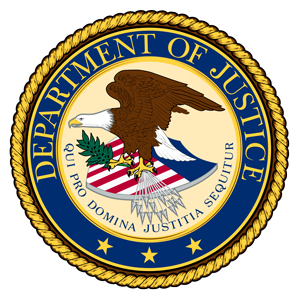May 12, 2021 - A Florida man was sentenced today to more than six years in prison for fraudulently obtaining approximately $3.9 million in Paycheck Protection Program (PPP)  loans and using those funds, in part, to purchase a $318,000 Lamborghini luxury car for himself.
loans and using those funds, in part, to purchase a $318,000 Lamborghini luxury car for himself.
David T. Hines, 29, of Miami, pleaded guilty to one count of wire fraud on Feb. 10. According to court documents, Hines submitted multiple PPP applications to a PPP-participating lender, claiming to have had dozens of employees and millions of dollars in monthly payroll. In addition to submitting false and fraudulent IRS forms to support the applications, Hines also assisted other individuals in obtaining fraudulent PPP loans. As part of the sentence, the court ordered Hines to forfeit the $3.4 million in fraudulent loan proceeds that law enforcement seized and the 2020 Lamborghini Huracan that Hines purchased for approximately $318,000.
Acting Assistant Attorney General Nicholas L. McQuaid of the Justice Department’s Criminal Division; Acting U.S. Attorney Juan Antonio “Tony” Gonzalez of the Southern District of Florida; Special Agent in Charge Kyle A. Myles of the Federal Deposit Insurance Corporation Office of Inspector General (FDIC-OIG), Office of Investigation’s Atlanta Regional Office; Inspector in Charge Joseph W. Cronin of the U.S. Postal Inspection Service’s Miami Division; Special Agent in Charge Amaleka McCall-Brathwaite of the U.S. Small Business Administration (SBA) OIG, Investigations Division, Eastern Regional Office; Acting Special Agent in Charge Tyler R. Hatcher of the IRS Criminal Investigation (IRS-CI) Miami Office; and Acting Special Agent in Charge Stephen Donnelly of the Board of Governors of the Federal Reserve System and the Bureau of Consumer Financial Protection OIG, Eastern Region, made the announcement.
The Coronavirus Aid, Relief, and Economic Security (CARES) Act is a federal law enacted on March 29, 2020, designed to provide emergency financial assistance to the millions of Americans who are suffering the economic effects caused by the COVID-19 pandemic. One source of relief provided by the CARES Act was the authorization of up to $349 billion in forgivable loans to small businesses for job retention and certain other expenses, through the PPP. In April 2020, Congress authorized over $300 billion in additional PPP funding, and in December 2020, Congress authorized another $284 billion in additional funding.
The PPP allows qualifying small businesses and other organizations to receive loans with a maturity of two years and an interest rate of 1%. Businesses must use PPP loan proceeds for payroll costs, interest on mortgages, rent and utilities. The PPP allows the interest and principal to be forgiven if businesses spend the proceeds on these expenses within a set time period and use at least a certain percentage of the loan towards payroll expenses.
The FDIC-OIG, U.S. Postal Inspection Service, IRS-CI, SBA-OIG, and the Board of Governors of the Federal Reserve System and the Bureau of Consumer Financial Protection OIG investigated the case.
Trial Attorney Emily Scruggs of the Criminal Division’s Fraud Section and Assistant U.S. Attorney Michael Berger of the Southern District of Florida prosecuted the case. Assistant U.S. Attorney Nicole Grosnoff is handling asset forfeiture.
The Fraud Section leads the department’s prosecution of fraud schemes that exploit the PPP. In the months since the CARES Act passed, Fraud Section attorneys have prosecuted more than 100 defendants in more than 70 criminal cases. The Fraud Section has also seized more than $60 million in cash proceeds derived from fraudulently obtained PPP funds, as well as numerous real estate properties and luxury items purchased with such proceeds. More information can be found at: https://www.justice.gov/criminal-fraud/ppp-fraud.
Anyone with information about allegations of attempted fraud involving COVID-19 can report it by calling the Department of Justice’s National Center for Disaster Fraud Hotline at 866-720-5721 or via the NCDF web complaint form at: https://www.justice.gov/disaster-fraud/ncdf-disaster-complaint-form.
Source: DOJ
